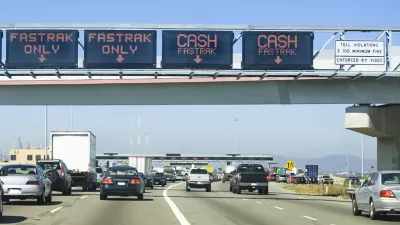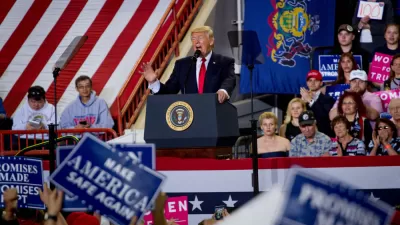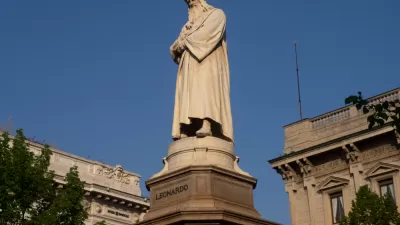A Washington Post/ABC News poll released Jan. 17 showed the exact opposite result of a Reuters/Ipsos poll released two days later on the financing for President Trump's $1 trillion infrastructure plan. However, the polls took different approaches.

The headline of The Washington Post article, "Most Americans don’t want new tolls to pay for road and bridge improvements, poll says," only asked one question on infrastructure.
The poll, conducted by telephone Jan. 12-15, 2017, asked respondents how they felt about private companies taking tax credits and allowing them to charge tolls in exchange for building roads and bridges. Furthermore, there was only one infrastructure question among the 46 questions that dealt with presidents Trump, Obama and other issues:
There is a proposal to offer nearly 140 billion dollars in tax cuts for private companies if they pay to build new roads, bridges and transportation projects. The companies then could charge tolls for people to use these roads, bridges and transportation. Do you support or oppose this proposal?
More accurate was how reported the finding for The Washington Post:
In [the] Washington Post-ABC News poll, 66 percent of those surveyed said they oppose a plan that would grant close to $140 billion in tax credits to investors who put their money into roads, bridges and transit in return for the right to impose tolls.
Why combine the two issues in one question? Why not ask about either tax credits or tolls?
While details of the infrastructure plan have yet to be released, "prior to the election, Donald J. Trump proposed giving private investors an 82 percent tax credit to put money into projects, credits that theoretically would reduce their need to profit from the investment," write Halsey III and Clement.
But even with tax credit incentives, investors are unlikely to put their money into projects that don’t provide a revenue stream, most likely in the form of tolls on roads and bridges.
====================================================================================================
The Reuters-Ipsos poll, conducted Dec. 16 – Jan. 12, released Jan. 19, took a different approach. Respondents were asked about three alternative options to finance Trump's infrastructure plan:
Do you agree/disagree with the following:
- I am willing to pay higher taxes to help invest in infrastructure in the U.S.
- 39.1% agreed
- 51.4% disagreed
- 9.5% unsure
- It is ok for the federal government to take on more debt to pay for infrastructure improvements
- 32.9% agreed
- 56.1% disagreed
- 11.0% unsure
- I am willing to pay tolls and user-fees to fund infrastructure improvements
- 50.1% agreed
- 41.4% disagreed
- 8.5% unsure
The result of the simpler and more comprehensive Reuters/Ipsos poll is quite clear: When offered three competing options to finance the trillion dollar infrastructure plan, tolls and user fees are most preferred, followed by higher taxes. The least favorite is debt-financing.
Hat tip to AASHTO Journal.
FULL STORY: Dr. Gridlock: Most Americans don’t want new tolls to pay for road and bridge improvements, poll says

Alabama: Trump Terminates Settlements for Black Communities Harmed By Raw Sewage
Trump deemed the landmark civil rights agreement “illegal DEI and environmental justice policy.”

Planetizen Federal Action Tracker
A weekly monitor of how Trump’s orders and actions are impacting planners and planning in America.

How Atlanta Built 7,000 Housing Units in 3 Years
The city’s comprehensive, neighborhood-focused housing strategy focuses on identifying properties and land that can be repurposed for housing and encouraging development in underserved neighborhoods.

In Both Crashes and Crime, Public Transportation is Far Safer than Driving
Contrary to popular assumptions, public transportation has far lower crash and crime rates than automobile travel. For safer communities, improve and encourage transit travel.

Report: Zoning Reforms Should Complement Nashville’s Ambitious Transit Plan
Without reform, restrictive zoning codes will limit the impact of the city’s planned transit expansion and could exclude some of the residents who depend on transit the most.

Judge Orders Release of Frozen IRA, IIJA Funding
The decision is a victory for environmental groups who charged that freezing funds for critical infrastructure and disaster response programs caused “real and irreparable harm” to communities.
Urban Design for Planners 1: Software Tools
This six-course series explores essential urban design concepts using open source software and equips planners with the tools they need to participate fully in the urban design process.
Planning for Universal Design
Learn the tools for implementing Universal Design in planning regulations.
Jessamine County Fiscal Court
Caltrans
Institute for Housing and Urban Development Studies (IHS)
City of Grandview
Harvard GSD Executive Education
Toledo-Lucas County Plan Commissions
Salt Lake City
NYU Wagner Graduate School of Public Service




























